
By Mike McPadden

For those considering a career in education, a hands-on, up-close and innovative approach to the teaching process is an invaluable opportunity. The School of Education of Brooklyn College recognizes that the force promoting Higher Learning from its inception--as well as what readies the road for generations of students yet to come--is the ability of present-day educators to teach others how to teach. 
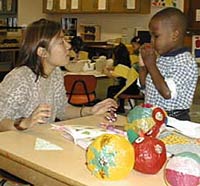
Beyond solid grounding in teaching literacy, arts, sciences and math, the School of Education is committed to the development of humane and engaging communities of learning for students of all ages and backgrounds. Among the School of Educationís most highly regarded facilities is The Carleton Washburne Early Childhood Center of Brooklyn College. The Center was established in 1953 as the laboratory school of the School of Education, providing a space for students to observe child development, study the roles played by educational, social and cultural environments in childrenís growth, and gain supervised experience working with children. 

The Center currently addresses the child care needs of Brooklyn College students by providing educational programs for their young children, as well as after-school, evening and weekend programs for young and school-age children. Professor Carol Korn is the Principal Investigator of the research projects and the Faculty Director of the ECC. Under her direction, the Early Childhood Center has developed a focus on the arts in early education, and is actively engaged in research and development activities in this area. Language, Literacy and The Arts is the name of an Early Childhood Center project that seeks to understand the relationships between multiple forms of representation, the development of literacy, and critical thinking skills. 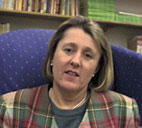
Dr. Deborah Shanley, Dean of the School of Education, explains, "Language, Literacy and the Arts examines young childrenís responses to visual images. The project has been funded through The Lincoln Center Institute, an organization with whom Brooklyn College has enjoyed a long relationship. We are proud of the work we do together." 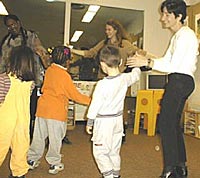
Throughout Language, Literacy and The Arts, Early Childhood Center teachers work with Lincoln Center Institute teaching artists in the visual arts, music, dance and theater to introduce and exploring works of art with students. The children respond to performances and artworks through movement, discussion, and through their own artistic productions. 
Puppetry in Practice (PIP) is an arts-based literacy program that was created in 1980. Dr. Tova Ackerman is the executive director and founder of Puppetry in Practice. As stated on the web site of The Center for Educational Change (CEC), Dr. Ackerman's work "demonstrated that the use of puppets are beneficial to those students learning English as a second language because puppets provide multi-sensory experiences through language skills, folklore, music, and storytelling. Ackerman's experience shows that students more readily express ideas in visual ways before they make a linguistic statement." View photos of some of the puppets* used in the program. Another revolutionary undertaking of the School of Education is Cyber Space in Classroom Places: Computer Use in Early Childhood Settings, which has been supported by technology and training grants provided by Brooklyn College. Cyber Space deals with the role of the computer in early childhood, and examines its use both as a tool for developing literacy and as a vehicle for expanding upon classroom experience. Children use the computers as a writing and graphics tool, and publish their own work on-line on their web page, Kidsí Page on the Early Childhood Center web site at: http://depthome.brooklyn.cuny.edu/ecc/ This work is an example of the School of Educationís multiple collaborations with outside institutions. Others include:
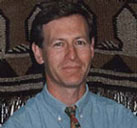
According to Professor Alberto Bursztyn, Acting Assistant Dean of the School of Education, the School annually enrolls about 800 undergraduate students in teacher education programs and over 2,000 graduate students in teacher education and related fields (counseling, administration, etc). This makes the School of Ed the single largest population, numbers-wise, at Brooklyn College, and one of the four largest in the entire CUNY system. The BC School of Education also supplies New York City with about nine percent of all its teachers. Quantity, however, is only a surface measure of success. The real story of the School of Education is the quality of its work. In addition to the array of opportunities available on the Brooklyn College Campus, the School of Education also has off-site programs available in all five boroughs of New York City plus Nassau, Suffolk, Westchester, and Putnam counties where students can access quality in-service professional development. Further educational opportunities are offered in Puerto Rico and Spain. 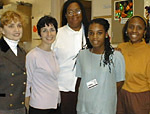
Perhaps greater than any other aspect of the School of Education of Brooklyn College, however, is the commitment that through the work being conducted by its faculty, todayís children can look forward to a better education, and a brighter and more meaningful tomorrow.
|
||||
